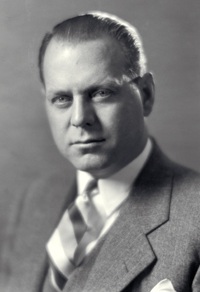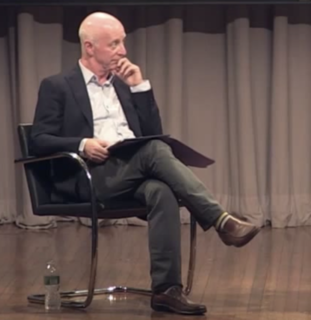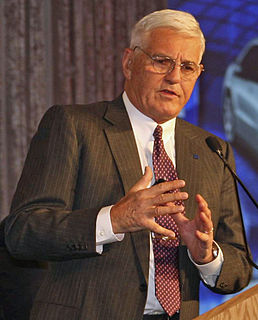A Quote by Harley Earl
The art of automobile design has progressed, until today it is regarded as one of the most important factors in the marketing of the automobile.
Related Quotes
In every phase of the automotive industry, certain factors have been more important than all others in relation to the way the automobile has looked. Phase One is really the Ford story. Function and production were the most important considerations. The automobile was an invention, and it looked like one.
You'll be riding along in an automobile. You'll be the driver perhaps. You're a Christian. There'll be several people in the automobile with you, maybe someone who is not a Christian. When the trumpet sounds you and the other born-again believers in that automobile will be instantly caught away - you will disappear, leaving behind only your clothes and physical things that cannot inherit eternal life. That unsaved person or persons in the automobile will suddenly be startled to find the car suddenly somewhere crashes.
Automobile is one of the most successful inventions of all time, but in my view, it is thoroughly obsolete already. And so by fundamentally rethinking the automobile, thinking of it as a robot on four wheels, essentially, something that can communicate with other intelligent devices, it can operate in a coordinated way, you can really start to fundamentally rethink urban personal mobility.
Today is such a time, when the project of interpretation is largely reactionary, stifling. Like the fumes of the automobile and of heavy industry which befoul the urban atmosphere, the effusion of interpretations of art today poisons our sensibilities. In a culture whose already classical dilemma is the hypertrophy of the intellect at the expense of energy and sensual capability, interpretation is the revenge of the intellect upon art.
If you look for instance at the automobile industry, part of the reason that you have the expansion of that sector, is precisely because we have gone out to talk to the automobile companies to explain government policy with regard to that sector, to talk to them about the MIDP and things like that. And indeed, it has been a very important part of attracting those investors to put in money in the South African economy and build motorcars in South Africa.
At Car and Driver, we were convinced that the automobile, as we knew and loved it, was as dead as the passenger pigeon. Ralph Nader was at full cry, ringing his tocsin of automobile doom into the brains of the public, convincing them that the lump of chrome and iron in the driveway was as lethal as a dose of Strontium 90 or a blast from a Viet Cong AK-47.
Everybody thinks an automobile needs an engine. Well, an automobile doesn't necessarily need an engine. What we do is shift electric motors into the wheels of our automobiles and so we have a completely different kind of thing where we have four independent intelligent wheels rather than a traditional internal combustion engine and power train and so on.
When you buy a used car, you kick the tires, you look at the odometer, you open up the hood. If you do not feel yourself an expert in automobile engines, you bring a friend who is. And you do this with something as unimportant as an automobile. But on the issues of the transcendent, of ethics, of morals, of the origins of the world, of the nature of human beings, on those issues should we not insist upon at least equally skeptical scrutiny?
The automobile, practical since 1906, was proceeding to disintegrate and stamp anew the pattern of communication, manners, and city life in the United States, by 1918; before long, men would begin to see that the automobile, and the mass production techniques which made its possible, could alter the national character and morality more thoroughly than could the most absolute of tyrants. As a mechanical Jacobin, it rivaled the dynamo. The productive process which made these vehicles cheap was still more subversive of the old ways than was the gasoline engine itself.
Houses are the abiding joys; they are the most emotion-stirring of all things. An automobile is regarded with fond affection, a typewriter becomes the inseparable companion, clothes can stir sentimentality, and the bit of bric-a-brac is a toy one would weep to see torn away - but houses are real, deep, emotional things. How much excitement in the cutting of a window, what enormous importance in the angle of a roof!


































